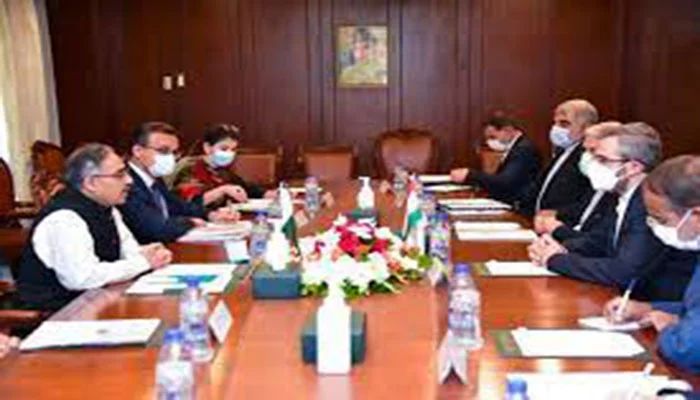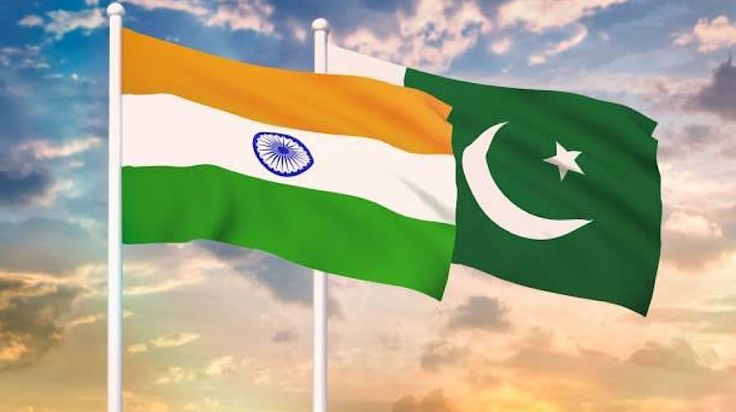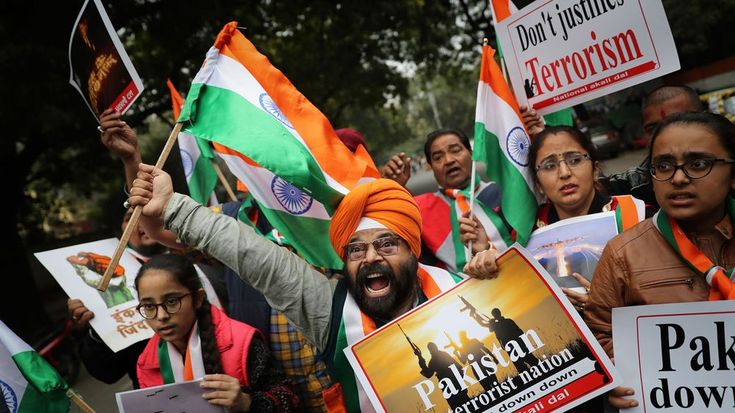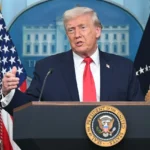Table of Contents
In a significant diplomatic move, Iran’s Foreign Minister Abbas Araghchi arrived in Pakistan on Monday to try and ease growing tensions between Islamabad and New Delhi. His visit comes at a critical time, following last month’s deadly attack on tourists in Indian-administered Kashmir — an incident that has dramatically escalated fears of conflict between the two nuclear-armed neighbors.
This is the first visit by a foreign dignitary since the April 22 attack in Pahalgam, where 26 tourists, mostly Hindus, lost their lives. Pakistan’s Foreign Ministry confirmed Araghchi’s arrival and said he would hold meetings with top Pakistani officials, including Foreign Minister Ishaq Dar, President Asif Ali Zardari, and Prime Minister Shehbaz Sharif.
Iran’s mediation offer highlights the seriousness of the situation. Just days earlier, Tehran had publicly expressed its willingness to help de-escalate tensions, recognizing the danger that any military confrontation could pose not only to South Asia but to broader regional stability.

Pakistan on High Alert
Tensions have been building rapidly over the past week. Pakistani authorities placed their armed forces on high alert after senior Cabinet minister Attaullah Tarar warned of “credible intelligence” suggesting India might launch military action against Pakistan in retaliation for the Kashmir attack.
Islamabad strongly denies any involvement in the Pahalgam incident and has even proposed an independent international investigation. However, New Delhi has so far rejected Pakistan’s offer, choosing instead to maintain pressure. Meanwhile, global leaders — including officials from the United States — have urged both sides to exercise caution and avoid provoking a larger crisis.

A Fragile History Repeats Itself
The Kashmir dispute has long haunted relations between India and Pakistan. Both countries claim the Himalayan region in full but control parts of it separately. Their competing claims have already triggered two major wars and countless smaller skirmishes since partition in 1947.
Today’s flare-up mirrors previous patterns of hostility, including diplomatic expulsions and the closure of airspace — measures both countries have already taken in this latest standoff.

Can Diplomacy Prevail?
Araghchi’s mediation efforts reflect Iran’s growing ambition to act as a stabilizing force in the Muslim world and beyond. But given the history of deep mistrust between India and Pakistan, success will not come easily.
While Pakistan’s willingness to accept international probes suggests some flexibility, India’s current posture hints at hardened positions following the Pahalgam tragedy. Whether Iran’s intervention can open a path to dialogue—or at least prevent another armed conflict—remains to be seen.
For now, the world watches closely, hoping diplomacy can avert another devastating chapter in South Asia’s long history of conflict.
Author Profile
- Syed Tahir Abbas is a Master's student at Southwest University, Chongqing, specializing in international relations and sustainable development. His research focuses on U.S.-China diplomacy, global geopolitics, and the role of education in shaping international policies. Syed has contributed to academic discussions on political dynamics, economic growth, and sustainable energy, aiming to offer fresh insights into global affairs.
Latest entries
 U.S. Foreign PolicyFebruary 2, 2026AI and Grand Strategy: The Case for Restraint – Navigating the Future of American Power
U.S. Foreign PolicyFebruary 2, 2026AI and Grand Strategy: The Case for Restraint – Navigating the Future of American Power National SecurityJanuary 31, 2026Treating China’s Connected Energy Systems as a National Security Risk
National SecurityJanuary 31, 2026Treating China’s Connected Energy Systems as a National Security Risk Global HealthJanuary 29, 2026The Future of the WHO—and How the United States Can Shape It
Global HealthJanuary 29, 2026The Future of the WHO—and How the United States Can Shape It Global TradeJanuary 22, 2026Trump Cancels Tariffs on European Nations Over Greenland Pursuit?
Global TradeJanuary 22, 2026Trump Cancels Tariffs on European Nations Over Greenland Pursuit?


2 comments
Your story truly touched me. I relate to it deeply, and your honesty gave me a fresh perspective. Thank you for sharing!
This is a timely and insightful analysis of Iran’s unexpected role as a mediator in the India-Pakistan conflict following the Kashmir attack. The article does well to highlight the geopolitical complexities, especially Iran’s strategic interests in balancing relations with both nations. However, it would be valuable to explore how other regional players (e.g., China, Saudi Arabia) view this mediation, given their vested stakes in South Asia.
The piece could also benefit from deeper context on India’s historical resistance to third-party mediation in Kashmir, as well as Pakistan’s likely expectations from Tehran’s involvement. Nonetheless, a compelling read for anyone tracking shifting alliances in the region. Looking forward to more updates on this developing situation!